
李怡,1936年生,香港知名時事評論家、作家。1970年曾創辦雜誌《七十年代》,1984年更名《九十年代》,直至1998年停刊。後在《蘋果日報》撰寫專欄,筆耕不輟半世紀。著有文集《放逐》、《思緒》、《對應》等十數本。 正在Matters連載首部自傳《失敗者回憶錄》:「我一生所主張所推動的事情,社會總是向相反趨向發展,無論是閱讀,獨立思考或民主自由都如是。這就是我所指的失敗的人生。」
Memoirs of a Loser 36: Father's Life and Struggles
Before my father died, I did not listen to him talk about his ups and downs and colorful life. Now I can only write about his life from his sporadic messages, relevant book records, and my fragmented memories. It's both meaningful to me and a reflection of the struggles of my father's generation.
Li Hua, born on September 23, 1909 (the 10th of August in the lunar calendar), formerly known as Li Cuntang, is a native of Xinhui, Guangdong. In 1927, at the age of 18, he left his hometown and went to Guangzhou to study at the Guangdong Film Academy founded by Wei Biyun. It was the infancy of the Chinese film industry, and very few people chose to study film. My father was the first student of the Film Academy. After completing the course in three months, he stayed at the school to help preside over school affairs. In the second phase of the academy, my cousin Li Chenfeng and later filmmaker Lu Dun were enrolled. Later, his father and sister Li Lilian (my aunt), Li Chenfeng, and Lu Dun organized an amateur theatre troupe. In 1929, the Nanguo Opera Club went to Guangzhou to perform, and his father and aunt went to Shanghai with the Nanguo Opera Club. In 1930, he cooperated with the composer Zhang Shu to perform the new opera "Wang Zhaojun" starring Li Lilian in Shanghai. In the same year, he joined Tianyi Company with Li Lilian, and his father was promoted from field record to assistant director. was 21 years old. In Shanghai for three years, it is known that during this time, he also traveled to Jinan, Qingdao, Tianjin, Beijing and other places. Sound films began to appear. In 1932, the Ziwei Company established by filmmaker Kuang Shanxiao in Guangzhou went to Shanghai to rent the recording equipment of Tianyi Company to shoot the sound film part of "Invincible Love Demon". After the completion, he and his father left Tianyi and returned to Guangzhou. My father helped Kuang Shanxiao to complete the film "Nothing" in Guangzhou, and stayed in Guangzhou to make several films. Among them, the most precious is "Bombing the Wuzhi Mountain" in 1933. He went to Hainan Island for location shooting and filmed a large number of clips of the Li people in primitive society. In Guangzhou, he met my mother, Li Youci, who was a Ziwei actress at the time, and married in 1934. Her mother, whose real name was Li Weiqing, was born in 1914 and died in Hong Kong in 2013.
In 1936, his father came to Hong Kong to join the Daguansheng Film Company as a director and became the director general of the South China Film Association.
The book "The Politics of Cantonese" published in Hong Kong in 2014 records that in 1935, the central government of Nanjing began to promote the Mandarin movement and wanted to ban Cantonese films. Li Hua, a celebrity in the film industry, etc., over 300 Cantonese filmmakers gathered at a restaurant in Hong Kong to make a statement." It is also recorded that in July 1937, the Hong Kong South China Film Association sent five representatives, including my father, to Nanjing to petition for the suspension of Cantonese films. But then the Sino-Japanese War broke out, Nanjing was attacked by the Japanese army, and the ban on Cantonese films was over.
After the Lugou Bridge Incident in 1937, the Japanese air raided Guangzhou. At that time, my father led a photography team to take the risk of the air raid to Guangzhou to photograph the people during the air raid, in order to arouse the audience's awareness of patriotism and salvation.
During this period, he also directed "Serve the Country with Loyalty" and "Light of the Nation", which were films that promoted nationalism. His father rarely acted as an actor in his life, but he acted as an actor in the 1939 anti-Japanese classic film "Island Paradise", and played the villain of a traitor regardless of his reputation. "Lone Island Paradise" is a charitable act of many filmmakers participating in Hong Kong regardless of payment. This video is still available on youtube channel [1] .
In 1937, Li Lilian, an aunt who was an actress in Shanghai, and Jiang Qing (stage name Lan Ping), who later became Mao Zedong's wife, defected to Yan'an, the base of the CCP. In 1938, my father went to work in Guangxi Art Museum in Guilin with Ouyang Yuqian. When I was in Guilin, my father, probably under the persuasion of my aunt in Yan'an, arranged for our fifth brother Li Gang (formerly known as Li Cunyi) and third sister Li Huilian to live in Hong Kong to send Guilin to contact the CCP organization and travel to Yan'an.
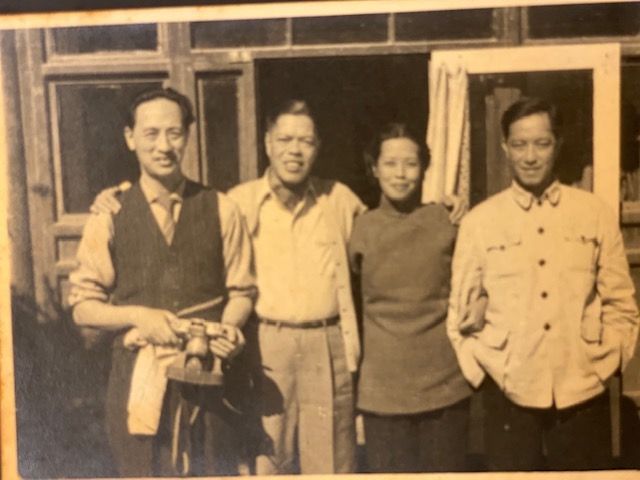
In 1940, our family moved to Shanghai. In 1941, my father went to Guilin to participate in the cultural work of the Anti-Japanese War. In 1942, he returned to Shanghai. In 1944, he went to Nanjing for a year and then returned to Shanghai. During this period, he changed his name to Li Yanlin to do business and engage in drama activities, as discussed in the previous article "Father and Drama in Occupied Areas". In 1945, he fled from the occupied area to Tunxi, which was also discussed in the previous article "Escape to Refuge". After the victory of the Anti-Japanese War, he ran movie theaters in Northeast China and Tianjin. It is likely that at that time, relying on his relationship with the Kuomintang government, he was given the opportunity to take over some movie theaters in Northeast China and Tianjin by "taking over enemy property" to make a living. The civil war spread, and he returned to Hong Kong in February 1948. After returning to Hong Kong, he entered the film circle, and his first directed film was the Cantonese film "Injustice, No Way" (1949). In the same year, he led the organization of the South China Film Workers Federation (South China Film Federation).
After his father returned to Hong Kong, he first appeared as a pro-Communist leftist filmmaker. He was the main role in the formation of the South China Film Federation, and the conference liaison was also in my house. He gave an opening speech at the opening in July 1949. But the subsequent leadership was under the control of the CCP Work Committee. Then his father served as the director of the Daguan Film Factory, and in 1953, he founded the Art and Culture Company to shoot Mandarin films. Jin Yong and Liang Yusheng's new martial arts novels emerged at this time. In 1959, his father founded Emei Company to make Cantonese martial arts films. Most of them were directed by him or Li Chenfeng, and produced under the name "Lin Yan". Several of his martial arts films shot in the mainland's Shaolin Temple, Wudang Mountain, Emei Mountain and other places have sold well. When the Cultural Revolution broke out in 1966, the left-wing film industry in Hong Kong withered, and his films were not sustainable. In 1968, he moved to Macau to save money. Died in Macau on August 22, 1975.
Tossing and turning in social turmoil, struggling to survive under various political interference and influence, this is my father's life.
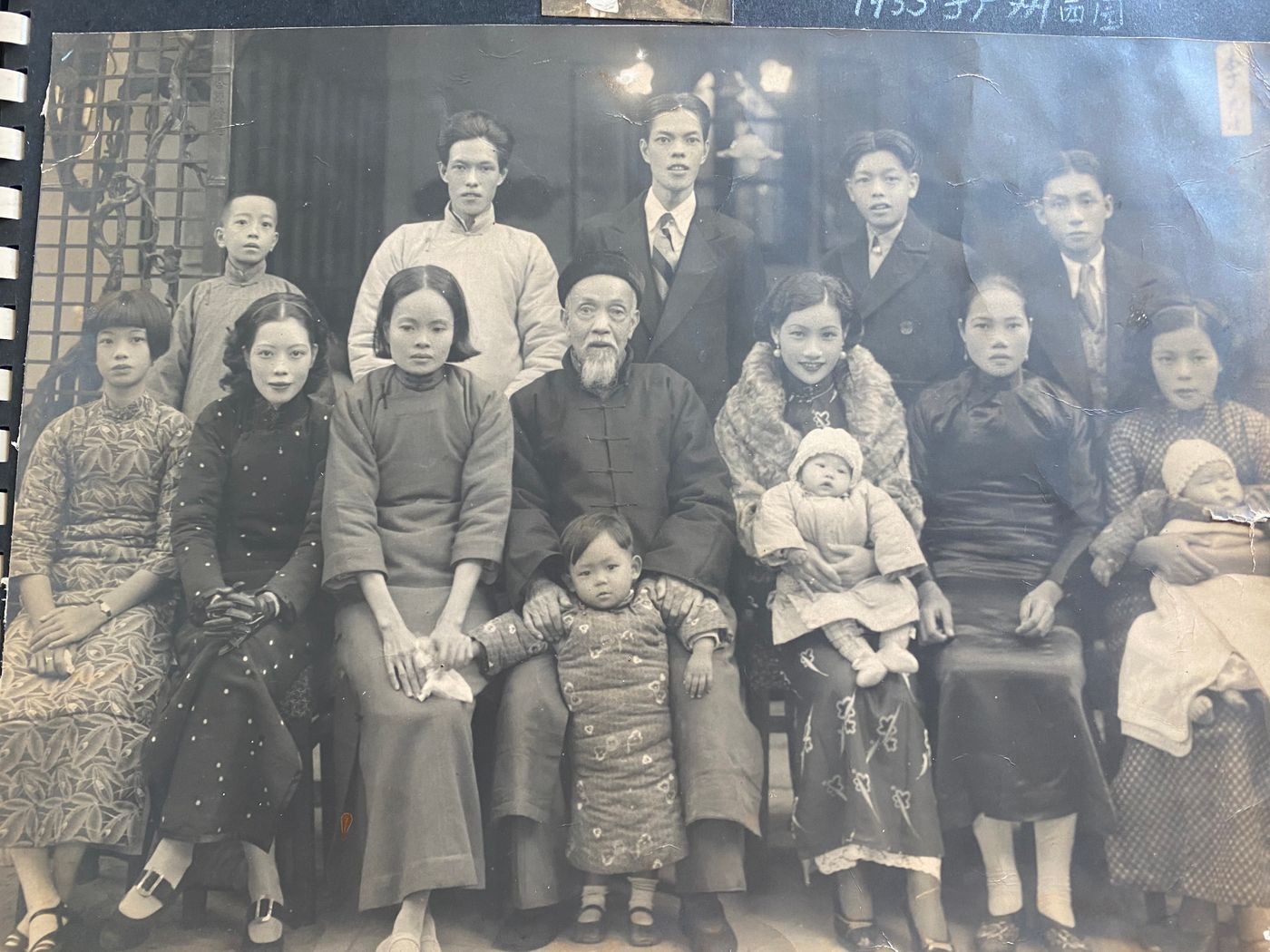
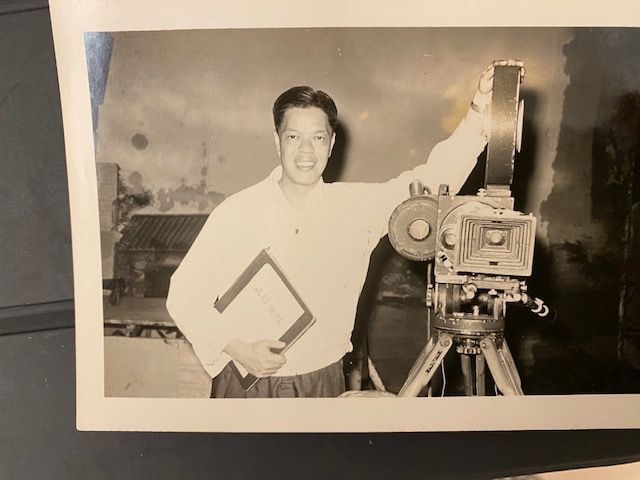
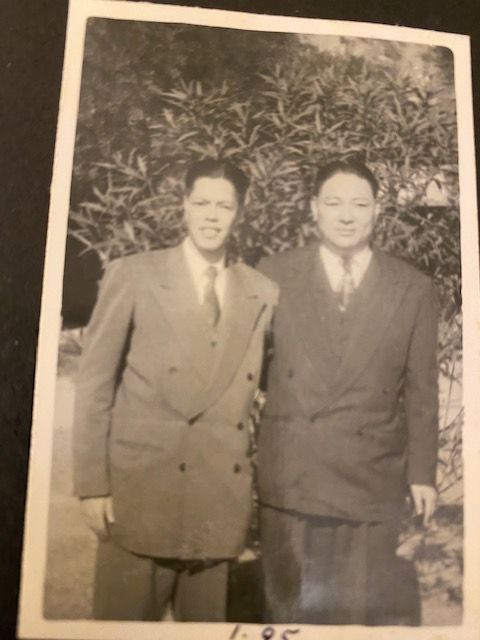
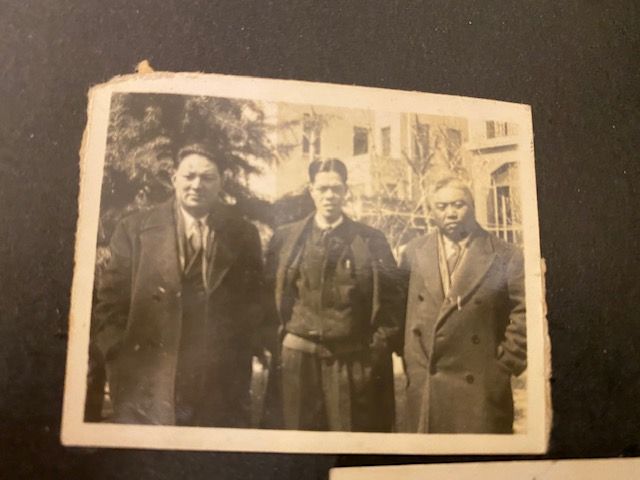
[1] Video reference: https://www.youtube.com/watch?v=eIQYy1Wdvwc
(Article published on July 16, 2021)
"Memoirs of a Loser" serial catalog (continuously updated)
- Inscription
- break through
- Inside the circle outside the circle
- murderous
- torment
- hurt
- turbulent times
- choice
- that age
- twisted history
- prophet
- Liberal final blow
- my family
- Occupied area life
- Paradise under the Wang regime
- Art and Literature in Occupied Areas
- Father and Occupied Area Drama
- Uncle Li's Tragedy
- flee
- The Fool's Experience, The Wise's History
- After the war, from Shanghai to Peiping
- ancient country style
- when swallows come
- under the left-wing ideology
- 1948 Tree Falling Hozen scattered
- Pig male dog male turtle male
- The success and failure of "Apple"
- How can you say goodbye to a spirit?
- The final chapter of the age of freedom
- Walking into the city early in the morning and seeing a dog biting a man
- Establish left-leaning values
- "The Faith of Troubled"
- The cutest person is the funniest person
- The green years of middle school
- A day abandoned by ideals
- talk about my father
- The struggle of father's life
("Memoirs of a Loser" was previously serialized in "Apple Daily" and is now being continuously updated by Matters)
Like my work?
Don't forget to support or like, so I know you are with me..
Comment…